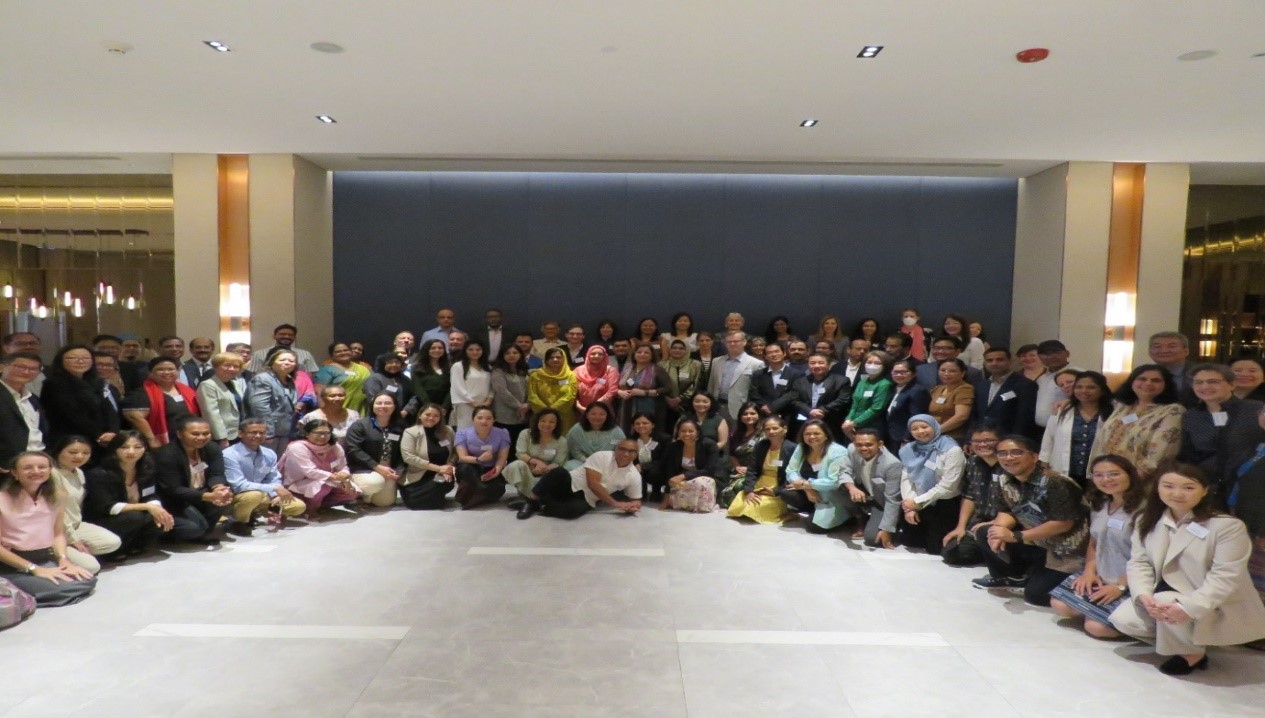Every Newborn Action Plan & Ending Preventable Mortality (ENAP-EPMM)
Women and babies continue to die at unacceptable high rates during pregnancy, childbirth and the first month after birth, most of them from causes that can be prevented or treated if they had access to quality, affordable, equitable and respectful care. The steady progress that was seen globally from 1990 to 2015 to reduce maternal and newborn deaths has near flatlined since 2016. The combined crises of the COVID-19 pandemic, rising poverty, climate change and intensifying conflict are putting strains on health systems and disproportionally affecting women and children in their capacity to seek and receive the health care they need. At the same time, the share of global health ODA for MNCH decreased during the 2020-2021 COVID-19 response. In 2021, the Every Newborn Action Plan (ENAP) and Ending Preventable Maternal Mortality (EPMM) global partnership, co-chaired by WHO, UNICEF and UNFPA, have established, with country governments, population coverage targets for each of these critical high impact packages of care in order to accelerate progress in MNH by 2025 as shown in the figure above. Using the ENAP EPMM targets and milestones, twenty-nine countries, including four countries in Asia (Bangladesh, Nepal, Pakistan and Sri Lanka), have developed MNH acceleration plans by 2025 and are implementing them since September 2023. Aims and Objectives: The workshop aims to strengthen technical approaches and partnerships to support accelerate progress on MNH SDG targets (SDG 3.1, SDG 3.2), in line with the objectives of the ENAP and EPMM. This consultative and interactive workshop will enable countries of the Asia-Pacific Region to update progress on ENAP EPMM targets and milestones and to define strategies and interventions to accelerate progress toward achieving the ENAP EPMM targets and milestones by 2030 - with a specific focus on: - ENAP/EPMM Target #2 (skilled Health Personal); - EPMM Target #4 (EmONC); - ENAP Target #4 (Small and Sick Newborns - SSN); and - EPMM Target #5 (on social determinants of MNH). Specific objectives 1. Review current progress on reaching the ENAP EPMM targets and milestones 2. Exchange on country experiences in accelerating progress in MNH and document lessons learned of using ENAP EPMM Targets and milestones to plan, implement, and monitor MNH country (acceleration) plans 3. Disseminate recent technical and programmatic frameworks and approaches in MNH 4. Review and monitor progress in the implementation of MNH country (acceleration) plans and identify and prioritize technical and financial support needs and potential additional tools for monitoring progress 5. Foster alignment and collaboration among countries and regional and global partners on implementing integrated MNH interventions Participants: Country level: 6 participants per country • Two representatives from the MoH (MNH) from Bangladesh, Bhutan, Cambodia, India, Indonesia, Lao PDR, Mongolia, Nepal, Pakistan, Philippines, Sri Lanka, Timor-Leste, Papua New Guinea; • One UNFPA Technical staff from the Country Offices of Afghanistan, Bangladesh, Bhutan, Cambodia, India, Indonesia, Lao PDR, Mongolia, Myanmar, Nepal, Pakistan, Philippines, Sri Lanka, Timor-Leste, Papua New Guinea, Pacific sub-regional office; • One representative from WHO; one representative from UNICEF; • One representative from key partner organization/civil society supporting MNH. Regional level: • Representatives from H6 partners: UNFPA; WHO; UNICEF; World Bank; Global level: • Representatives from H6 partners: UNFPA; WHO; UNICEF; World Bank; • Representatives from other organizations supporting MNH: GFF; Save the Children; JHPiego (Momentum and AlignMNH); Khuddi Research & Development; Burnet Institute; Columbia University/AMDD; University of Geneva, Moru/Health GeoLab. Participants from Pakistan: 1. Dr Shabana Saleem, DG Population Planning Wing, MoNHSR&C 2. Dr Sabin Nasir, Deputy Director, IRMNCH, Punjab 3. Dr Samia Rizwan, Health Specialist, UNICEF, Islamabad 4. Dr Saira Khan, 5. Dr Naila Yasmin, Program Analyst, SRH, UNFPA 6. Dr Saadat Khokhar, Program Analyst, SRH, UNFPA 7. Dr Sayema Awais, Program Officer, MNCAH, WHO
